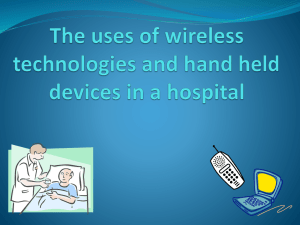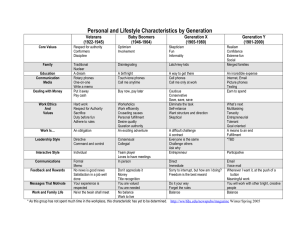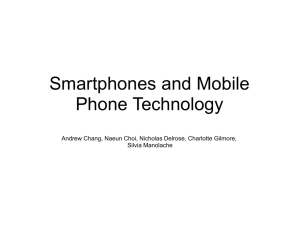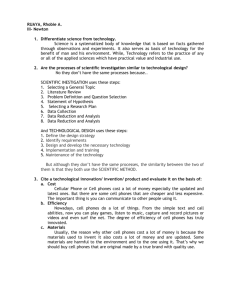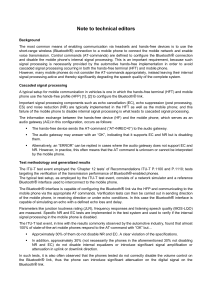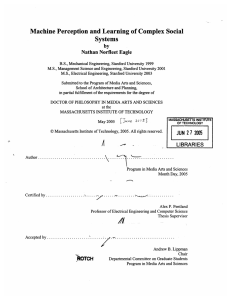Mellos, Nick
advertisement
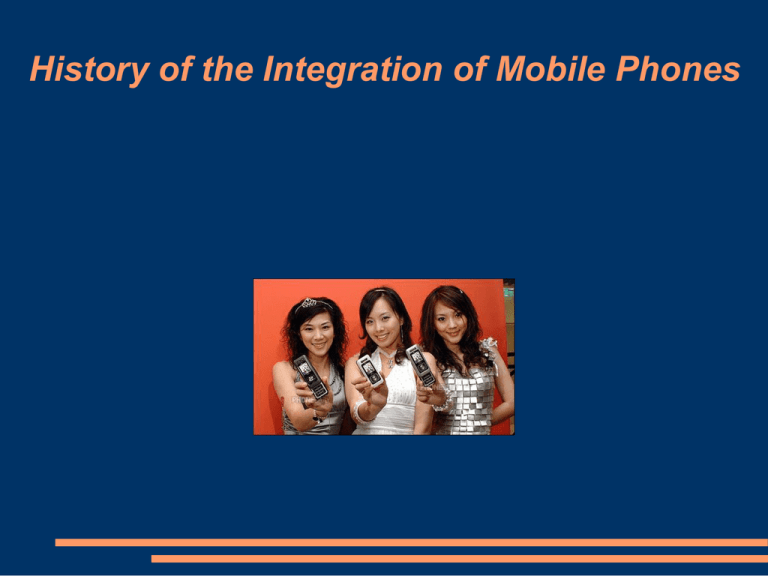
History of the Integration of Mobile Phones History of the Mobile Phone In 1970 Amos Joel of Bell Labs invented "call handoff" that allowed a mobile phone user to travel through several cells during the same conversation Martin Cooper of Motorola is widely considered to be the inventor of the first practical mobile phone for handheld use in a non-vehicle setting Using a modern, if somewhat heavy portable handset, Cooper made the first call on a handheld mobile phone on April 3, 1973 Fully automatic cellular networks were first introduced in the early to mid-1980s (the 1G generation) Until the late 1980s, most mobile phones were too large to be carried in a jacket pocket, so they were usually permanently installed in vehicles as car phones SMS (Short Message System) SMS was being considered as a feature for mobile phones as early as 1985 The first commercial text message wasn't sent until 1992 from a personal computer to a mobile phone The first phone to phone SMS was claimed to have been sent by Riku Pihkonen, an engineering student at Nokia, in 1993. Initial growth was slow, with customers in 1995 sending on average only 0.4 messages per GSM customer per month A whole new alphabet emerged because SMS messages took a long time to enter and were quite abrupt as people attempted to say as much as possible with as few keystrokes. Abbreviations such as 'C U L8er' for 'See you later' sprung up for time saving and trendiness Ringtones It all more or less started with the famous 'Nokia Tune', which is a 13 note rendering of Francisco Tarrega's masterpiece, Gran Vals. Tarrega was a 19th-century Spanish musician. Around this time all ringtones were monoponic, meaning they could only play one note at a time. One of the first commercial ringtone service available was the finnish operator, Radiolinja´s "jukebox" service in 1999. The year 2002 is a major milestone in ringtone history. Nokia and other phone companies adopted the MIDI standard that enabled richer and more realistic polyphonic sounds, which is multiple notes being played at one time. Modern mobile phones can play MP3 files and have higher quality ringtones than ever before. Camera Phone A camera phone is a mobile phone which has a camera built-in and allows the user to share pictures and video with anyone instantly. The first complete camera phone was built by Philippe Kahn in 1997. The first commercial camera phone complete with infrastructure was the J-SH04, made by Sharp Corporation with the Sha-Mail (Picture-Mail in Japanese) infrastructure and marketed by J-Phone in Japan. In North America, the first camera phone was manufactured by Sanyo and launched by Sprint with the PictureMail infrastructure. Camera phones have become widely used because they are cheap, convenient, and portable, and are now a staple of the majority of cell phones. Bluetooth 1998 The Bluetooth Special Interest Group (SIG) is formed and officially adopts the project name “Bluetooth” as the name of the technology 1999 The Bluetooth 1.0 is released 2000 The first Bluetooth consumer product hits the market - a Bluetooth headset and phone adapter from Ericsson Bluetooth wireless technology is a short-range communications technology intended to replace the cables connecting portable and/or fixed devices Bluetooth enables user to have an affordable and easy way to have a hands free experience when using mobile phones. Digital Media Player Many phones today have built in flash memory drives allowing them to store up to 4GB of music, movies, and media. This combines the features of an MP3 and movie player with the features of a mobile phone. Internet Device Mobile phones now have an integrated web browser, and html e-mail client. This technology allows your mobile phone to act as a home PC in the palm of your hand. Allowing you to stay connected with Yahoo and Google searches, download e-mail, check the weather, and sync bookmarks from your home PC. Miscellaneous Features Calculator Clock Calendar Phone Book Maps The constantly upgraded and newly added integration of all these features onto a single device is an intuitive and efficient way for consumers to be in constant control of all their media needs Instead of owning, and paying for several different devices which all perform separate actions, this integration bundles everything the modern consumer needs into one all inclusive package Works Cited http://www.findarticles.com/p/articles/mi_m0SOR/is_3_64/ai_109568880 http://en.wikipedia.org/wiki/Mobile_phone_features http://wataniya.yahoo.com/smshistory.html

